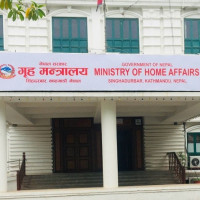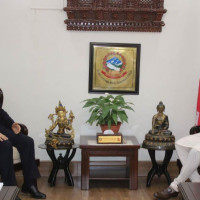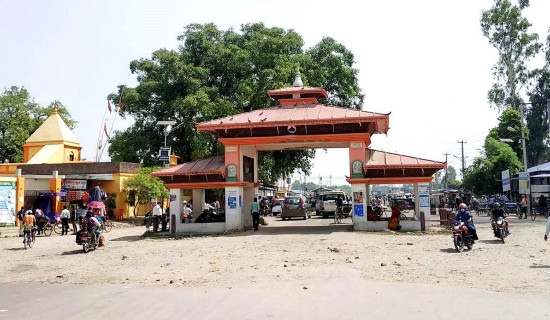- Thursday, 26 February 2026
Incorporate Indigenous Knowledge In Curricula
Everything that shapes the human mind revolves around nature and nurture in which imparting and receiving education plays a vital role. Talking about education, it should be remarked in the highest priority integrating deep contemplation. Pedagogical practices are effective if they ensure the overall development of students, ensuring physical, mental, emotional, and social well-being. As far as Nepal's pedagogical practices are concerned, there is still a touch of traditional practices where students do not come up with productive outcomes that may help them to survive life and compete in a global marketplace. Though different pedagogies related to teaching and learning processes are adopted, they are challenged in terms of ensuring the happy and successful life of students.
There is an urgency to revise Nepal’s curricula and pedagogies to strengthen inclusive education that ensures equal opportunity of education to all regardless of class, culture, tradition, ethnic groups, and religion. Inclusive education is not only related to physically and mentally differently able people but also to those belonging to minor groups. Education should aim to imbibe moral values in students and equip them with survival skills that may guarantee success in their personal and professional lives. Nepali curricula at the school and university levels should seriously adopt the teaching contents in a way that encourages students’ curiosity towards learning and hone their research skills.
Urgent need
There is an urgent need to reclaim education in Nepal as education in the present context is leading students towards disasters. For instance, despite being educated, many students lack a sense of contentment in managing the art of living. There is a need to impart an education that gives top priority to the happiness of the students. Effective pedagogical practices encourage the all-inclusive development of students. In the context of Nepal, traditional methods still play a significant role. This explains why our students lack productive skills as well as competitiveness in the global marketplace. While various teaching and learning pedagogies have been implemented, they face challenges in guaranteeing students' happiness and success in life.
Nepali curricula, at both school and university levels, should seriously adopt teaching content that makes students creative and imaginative by opening up cognitive faculty of mind. There should be tests in an innovative way after the completion of each unit. Nepal’s curricula and pedagogies need to recognise indigenous knowledge and local cosmologies at school and university levels to make students more practical, social, creative, and disciplined. This integration ensures that students spend their lives meaningfully and happily.
Knowledge without wisdom is more or less like a driver without control. Learning about local cosmologies helps the students grow wisely and then start employing the rationality of their minds. The purpose of education should be aligned in a way that prepares students to master the art of living. Life is not a bed of roses; it is full of challenges as well. So, there is a need to integrate pedagogy like positive psychology pedagogy to help students learn and practice humanistic values. This may help them to cope with the challenges their lives throw at them in the future.
Nepali education system needs to be revamped so that it will be instrumental in fulfilling noble objectives for students’ welfare; rather it becomes a product of memorisation through adoption of the conventional education system. In addition to this, today’s education system converts students into being more selfish or self-centered. Moreover, many so-called educated ones are jobless and the victims of psychological distress that comes in the form of fear, anxiety, and depression. As far as reflecting humanistic values are concerned, they are far behind and what can be more pitiful than this?
Stress-free environment
Like education in Finland, Nepal should create a stress-free environment for students, and teachers must be postgraduate and well-trained from the primary levels. In addition, teachers should be empowered with different relevant trainings. Furthermore, they should be engaged in making agendas for the education system. Education should be the main agenda in a nation’s development.
Knowledge holders should be well recognised for their expertise, talent, and skills by education policymakers. They are the real contributors to making a nation through education and their active participation must be ensured with ownership. For this, they should be periodically called for meetings to share valuable ideas that set agendas for bright education. Their knowledge and experiences matter in designing the education system. Additionally, they should be provided with field visits to different schools across the country to make them aware of the present state of education. Most importantly, the government, experts and policymakers must contemplate the present scenario of the education system and foster education deliverance accordingly focusing overall development of students to ensure their growth and happiness.
(The author is an assistant professor at the Kathmandu University School of Law and Engineering.)















